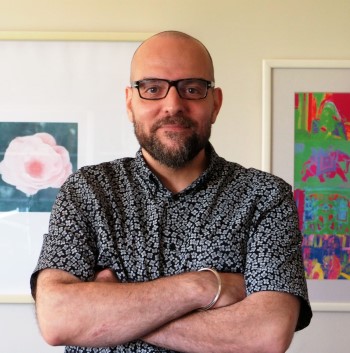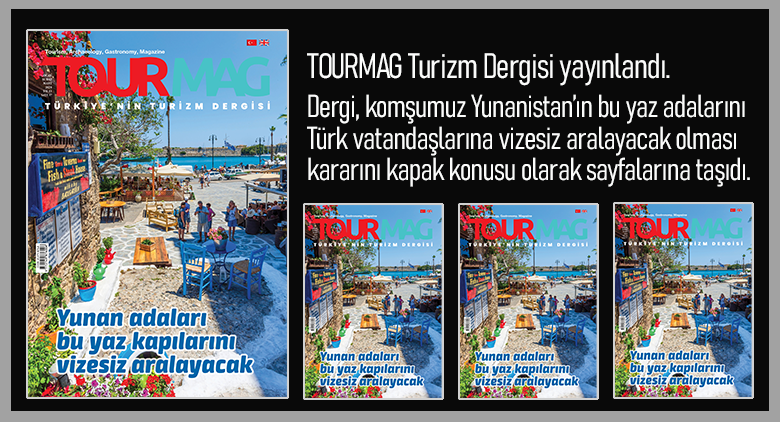At the ITB Berlin, the world’s most significant tourism fair, which took place for the first time in four years, all participants officially welcomed each other. Following a series of setbacks in the tourism industry, seeing this valuable community back together was the most evident proof that the light at the end of the tunnel is increasingly growing and keeping the motivation high. The fair, which had Georgia as the official host country, occurred between March 7th and 9th.
The ITB Berlin fair has been an important event for the tourism industry since its establishment in 1966. This fair provides a platform for businesses to showcase their products and services and networking opportunities for professionals in the tourism industry. The event brings together tourism experts worldwide, including representatives from national and international tourism organisations, travel agencies, hotel chains, and airlines.
Despite the setbacks the tourism industry has experienced due to the COVID-19 pandemic, the ITB Berlin fair has continued attracting participants from around the world. The fair allows participants to discuss the current situation of the tourism industry, exchange ideas, and explore new business opportunities. Georgia had a significant presence as the official host country of the 2023 ITB Berlin fair. Georgia is located in the Caucasus region of Eurasia, and it is known for its rich cultural heritage, scenic landscapes, and traditional cuisine. Georgia has been working to promote its tourism industry in recent years, and hosting the ITB Berlin fair provided an opportunity to showcase its offerings to a global audience.

The ITB Berlin event, which was only open to Business To Business (B2B) visitors for the first two days, took place with approximately 5,500 organisers from 161 countries. According to official figures, around 24,000 people visited the fairgrounds. At the four main stages of the ITB Berlin Convention, over 400 speakers held nearly 200 panels, providing unique conversations that more than satisfied the curiosity of the tourism industry. ITB’s new concept, HOME OF LUXURY or ITB by LUXURY, was the most prominent hint that caught the attention of fair officials towards the luxury and exclusive travel demands that have emerged during the pandemic. This event, which hosted luxury tourism providers and buyers worldwide, created new content for curious tourism professionals in light of conceptual expansions. Additionally, the event at the hybrid studio stage in Hall 5.3 met the serious expectations of those interested in knowledge.

The fair, which sets the trends for world tourism, had a natural consequence of the intensity from past years. However, this intensity started to decrease significantly on the second and third days of the fair, as approximately 15 halls of the fairgrounds were closed compared to previous years. Some who navigated the show correctly may have noticed that all galleries from Hall 8¹ to the 19th North Entrance Hall were closed, but others may have been unaware of this situation. The 15 closed galleries naturally increased the congestion felt in the open areas. You can only walk back to the 19th North Entrance Hall or take the ring bus services in Sommergarten (summer garden). The fair has shrunk and focused on a more concentrated area. Many institutions and countries could not participate as they should have.

During my visits to the booths, I observed that significant companies had no noticeable presence or were located in smaller booths. The absence of countries like China and Russia also affected the situation at the fair. There was generally a positive atmosphere at the fair, but this optimism should be seen as a move resulting from the reunion after a 4-year mandatory break. Some halls’ atmosphere was not very optimistic. The sly presence of the economic crisis was discussed as one of the most critical issues in many booths. Each institution aims to move forward with cautious and solid steps within itself. The overall atmosphere at the fair reflected that everyone had no power left to experience another crisis.

This year’s ITB brought the global tourism and travel industry together and showed what is behind the severe upheaval the industry has experienced. Under the slogan “Mastering Transformation”, ITB Berlin addressed the most critical current issues shaping the global tourism and travel industry. One of the most important steps for me this year was ITB Berlin’s partnership with Click A Tree as part of the Change.25 strategic plan, which includes plans to become carbon neutral by 2025. In addition, the Tourism Equality Awards were also presented at ITB. The Equality in Tourism International organisation brought the Tourism Equality Award to the agenda, designed to improve gender equality in tourism businesses worldwide. This concept rewarded tourism organisations demonstrating excellence in gender equality commitment and was awarded to Travel Excellence from Costa Rica at ITB Berlin on International Women’s Day.

Another topic is the travel trends that come to mind for travellers every year. While specific accommodation and travel modes are expected to stand out in 2023, this year’s main topics focus on digital traveller interaction and the digital transformation of travel and accommodation organisations. In summary, it is time to strengthen your digital ecosystem. Concepts such as experimentation, creativity, and agility should be highlighted as important topics. Some of the travel and technology trends predicted for 2023 at ITB include:
- Travellers will increasingly tend to use technology to reduce contact.
- The aviation industry will take technology to a new level by further developing it.
- Additionally, more travellers will be looking for comprehensive travel insurance.
- Finally, cyber security will become much more critical in the travel sector.

The regions that impressed me the most were Taiwan, Japan, and Korea. These regions looked more vibrant and colourful than ever. Additionally, the area dedicated to China was entirely devoted to health tourism, with mostly Turkish doctors, hospitals, and clinics present.
Finally, not mentioning Turkey is not possible. Although Turkey had a strong presence in the national stand area, it may have felt somewhat squeezed due to the smaller size of the site. Despite earthquakes and other adverse events, there are positive signs for Turkey in the German tourism market. As a destination generally known for beach holidays, Turkey expects more than 5 million German tourists during the upcoming holiday season.

General Manager of Fest Travel
However, one of the most noticeable changes was the location of Turkey’s stand. In previous years, Turkey was in the same area given to Saudi Arabia this year, and Turkey has been moved slightly more towards the Middle East region. At the same time, when entering the smaller area where Turkey’s stand was located, it was written as if you had stepped into the Middle East from the upper entrance and as if you had entered Europe from the lower hall. Turkey’s positioning in the Western world has been applied in this way. It did not bother me personally. I have read that some participants reacted negatively to this, but I did not experience such a reaction.
Considering the vital importance of face-to-face meetings for the travel and tourism industry, tourism fairs are the most significant evidence of actual contact. Since the tourism industry is people-oriented, establishing intimacy is only possible with real connections. Tourism fairs are among the most suitable platforms for providing these essential interactions. However, it is also true that if tourism fairs proactively don’t update themselves in light of upcoming changes, they may become analogous and lose their importance.



